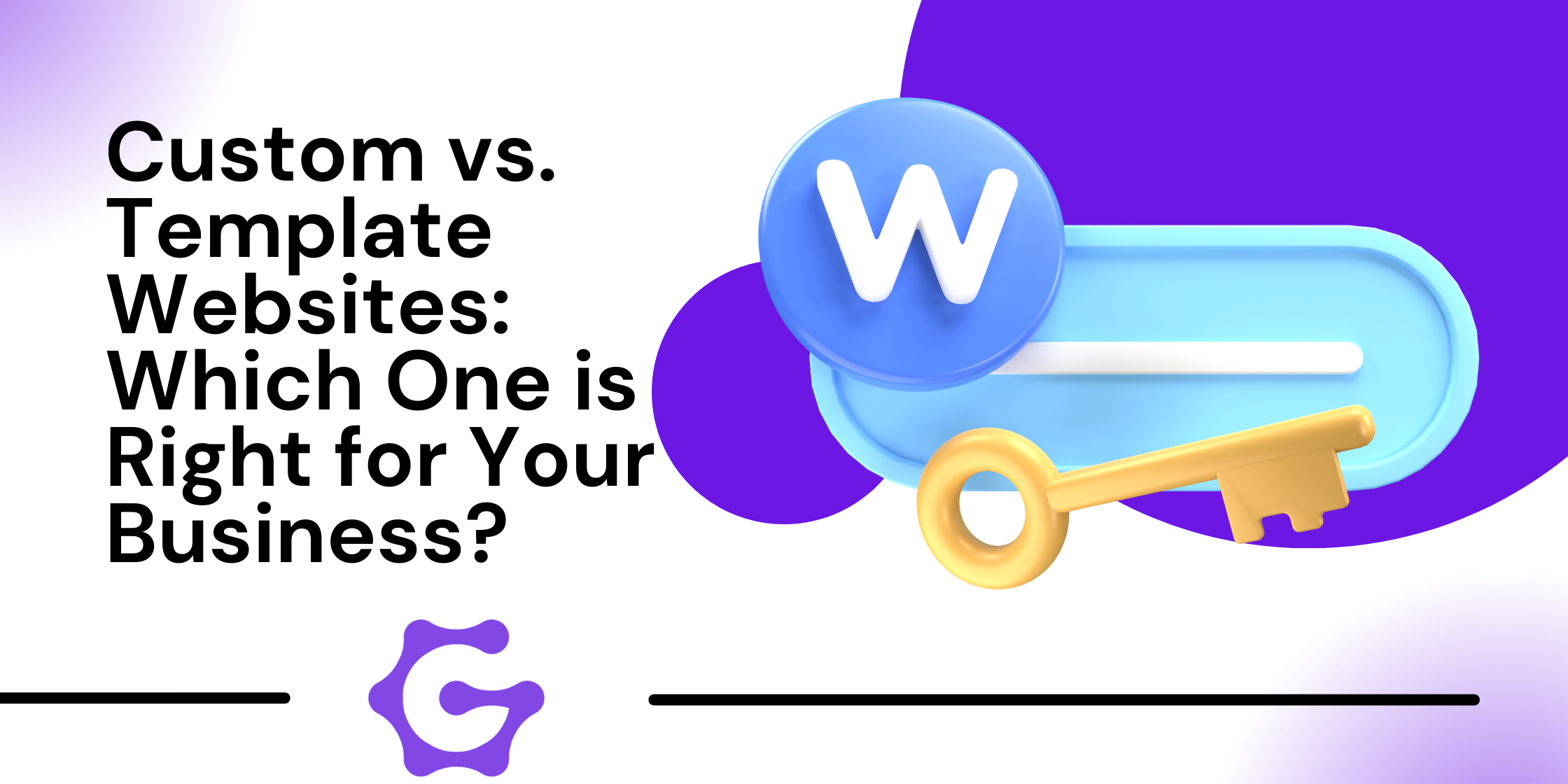Custom vs. Template Websites: Which One is Right for Your Business?

When you’re building a new site, the big question is always the same: Do you go custom or stick with a template? Both can get you online, but the choice you make could have a long-term impact on your brand, your wallet, and your sanity. Let’s break it down.
What Is a Custom Website?
A custom website is designed and developed from scratch to meet your specific business requirements. This approach involves working with web designers and developers to create a unique look, feel, and features tailored to your brand. This usually means writing fresh code (HTML, CSS, JavaScript) and potentially adding advanced integrations and backend systems.
Key Features of Custom Websites:
- Unique, tailored design. Nobody else has the same layout, color scheme, or style.
- Flexible functionality and features. Need a custom booking system? An intricate e-commerce setup? This is for you.
- Full control over the user experience and branding. Every pixel, every button, every piece of content is built for you.
- Scalability for future growth and complex integrations. As your business expands or your needs shift, your site can adapt without a full rebuild.
What Is a Template Website?
A template website is built using pre-designed templates from platforms like Wix, Squarespace, or WordPress. You pick a theme, swap in your content, and—voilà—you have a functioning site without wrestling with raw code.
Key Features of Template Websites:
- Pre-designed layouts with easy customization. Minimal design decisions required.
- Drag-and-drop functionality for fast setup. No coding degree needed.
- Cost-effective and user-friendly. Subscription plans can be as cheap as $10–$50 a month.
- Limited scalability and customization compared to custom sites. You can tweak colors, fonts, and basic layouts, but you’re usually stuck with whatever the template allows.
Pros and Cons of Custom Websites
Pros: They offer unique advantages, particularly when it comes to branding and functionality. With a custom-built site, your brand can stand out with a one-of-a-kind design that aligns perfectly with your business identity. You’ll have full control over every element, allowing you to tailor the website’s look, feel, and features to meet your exact needs. Custom sites also offer scalability, making it easier to add new features and integrations as your business grows. Plus, because they’re built from scratch, custom websites often deliver optimized performance, offering faster load times and better security.
Cons: Custom websites come with their share of challenges. The most significant drawback is the higher cost: development can range from $5,000 to $50,000 or more, depending on complexity. In addition to cost, building a custom site takes time, often several months, from concept to launch. Once live, you’ll also need to budget for ongoing maintenance, as regular updates and technical upkeep can require additional costs or the help of a dedicated team.
Pros and Cons of Template Websites
Pros: Template websites are a popular choice for businesses looking for a quick, cost-effective solution. You can get online in hours or days, not months.One of their biggest advantages is affordability, with many plans starting as low as $10 to $50 per month. Ease of use is another key benefit, as no coding skills are required; most platforms offer drag-and-drop functionality, making website creation accessible to anyone. Additionally, many templates come with built-in features like SEO tools, analytics, and responsive designs, providing a solid foundation for a business website.
Cons: That said, template websites have limitations. Customization options are often restricted, meaning you’re limited to the layout and features provided by the template. This can lead to a generic design that looks similar to other sites using the same template. As your business grows, you might encounter scalability issues, finding the platform’s capabilities too limiting for your evolving needs. Finally, template sites might not perform as well in terms of speed or flexibility, especially if overloaded with plugins, which can impact the overall user experience.
Which One Is Right for Your Business?
Choose a Custom Website If:
- You crave a truly unique brand presence.
- You need specialized features or complex integrations.
- You have the budget and time to invest in a long-term, scalable solution.
- Cost: $5,000 – $50,000+ for development, plus ongoing maintenance and hosting fees.
Choose a Template Website If:
- You’re a startup or small business with a limited budget looking to get online quickly.
- Your website’s primary purpose is to provide basic information or serve as a simple portfolio.
- You prefer a DIY approach and want to manage your site without relying on developers.
- Cost: $10 – $50/month for subscription plans, with potential additional costs for premium features, plugins, or templates.
A custom site delivers a high-end, one-of-a-kind experience—perfect if you want to stand out in a crowded marketplace and have the resources to do it justice. A template site, on the other hand, is quick and cost-effective. You might blend in a bit, but you’ll get online fast and for less. Either way, investing in a solid web presence is non-negotiable. Just pick the route that fits your goals, budget, and level of patience—and get ready to make your mark on the digital world.